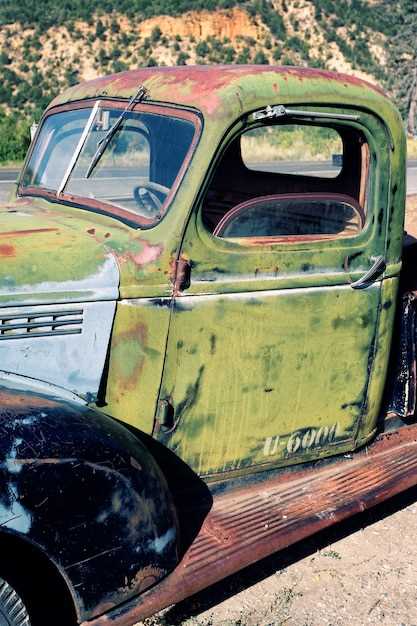
Buying a classic truck can be an exhilarating experience, blending nostalgia with the thrill of ownership. However, this journey is not without its challenges. When considering such a purchase, it’s essential to navigate through several key questions that will guide you in making an informed decision. Understanding what to look for, what to expect, and how to assess the value of a classic truck can significantly impact your investment.
One of the first questions to ask is about the truck’s history. Documents such as the title, service records, and any previous restoration work can reveal crucial information. Knowing the history aids in evaluating how well the truck has been maintained, which directly correlates with its performance and longevity. Additionally, consider the type of classic truck you’re interested in; certain makes and models are renowned for their durability and ease of restoration, while others may require more effort and investment.
Another important question revolves around your intended use for the classic truck. Are you looking for a vehicle to restore to its original glory, or do you plan to use it as a daily driver? This distinction will affect not only your choice but also your budget. Whether you desire a showpiece or a practical vehicle, aligning your expectations with reality will help in making a well-rounded decision.
What to Inspect Before Purchasing a Classic Truck?

When it comes to buying a classic truck, thorough inspection is crucial. This guide will help you identify key areas to assess to ensure you are making a sound investment.
1. Engine Condition: Start by assessing the engine’s overall condition. Check for any leaks, excessive oil consumption, or strange noises. Look for signs of rust and wear on components. A compression test can provide insight into the engine’s health.
2. Frame and Body: Inspect the truck’s frame for rust or damage. A solid frame is essential for safety and durability. Look closely at the body for any signs of previous accidents, such as misaligned panels or uneven gaps. Pay attention to rust spots, particularly in areas that are prone to corrosion.
3. Suspension and Steering: Evaluate the suspension system and steering components. Test for responsiveness and check for wear on bushings. Ensure the truck handles well and does not exhibit unusual noises or vibrations while driving.
4. Electrical System: Inspect the electrical components, including wiring, lights, and dashboard instruments. Verify that all systems function correctly. Look for frayed wires or signs of aftermarket modifications that could affect reliability.
5. Tires and Brakes: Check the tires for tread wear and sidewall damage. Uneven tire wear can indicate alignment issues. Inspect the brake system, ensuring both the front and rear brakes operate effectively. Look for signs of wear on brake pads and rotors.
6. Interior and Features: Evaluate the interior condition, including seats, dashboard, and instruments. Check for any missing or damaged parts. Consider whether the upholstery and fittings are original or have been replaced; this can impact the truck’s value.
7. Documentation and History: Request maintenance records and the truck’s history. Understanding past repairs and modifications can help gauge its reliability and how well it has been cared for over the years.
By meticulously inspecting these areas, you can ensure a more informed decision when it comes to buying your classic truck, increasing your chances of enjoying a remarkable vehicle.
How to Evaluate the True Value of a Classic Truck?

When considering buying a classic truck, it is essential to accurately assess its true value. This process requires careful examination of several key factors that influence the overall worth of the vehicle.
Firstly, condition plays a significant role in determining value. A classic truck in excellent condition, with minimal rust and original paint, will typically command a higher price than one in need of substantial repairs. Inspect the body, frame, and mechanical components thoroughly.
Next, rarity is another critical aspect. Limited production models or unique configurations can greatly increase a classic truck’s market value. Research the specific make and model to understand how many were produced and how many still exist today.
Furthermore, the history of the classic truck should not be overlooked. Provenance, including previous ownership and any documented restoration work, can add value. A truck with a rich backstory or celebrity connection may be more desirable to collectors.
Additionally, it’s vital to consider the market demand for the specific type of classic truck you are interested in. Trends can fluctuate; thus, keeping an eye on current market conditions and auction results will provide insight into fair pricing.
Lastly, don’t underestimate the importance of authenticity. Matching numbers and original parts are significant in evaluating the true value of a classic truck. Trucks with restored or modified components may be less valuable than those that retain their original features.
By carefully considering these factors when buying a classic truck, you can make a more informed decision and ensure that you are paying a fair price for its value.
What are Common Pitfalls to Avoid When Buying a Classic Truck?
When buying a classic truck, it’s essential to be aware of several common pitfalls that can lead to regret and unexpected expenses. This guide highlights these pitfalls to help ensure a smoother purchasing experience.
One major mistake is neglecting a thorough inspection of the vehicle. Many buyers are drawn in by the beautiful exterior but fail to check the engine, transmission, and undercarriage. Make sure to conduct a comprehensive examination or hire a specialist who understands classic vehicles.
Another common pitfall is overlooking the importance of documentation. Verify the truck’s history, including previous owners, maintenance records, and any modifications made. This information can reveal whether the vehicle has been well cared for or if it has hidden issues that could affect its value in the future.
Price is often a significant concern, leading buyers to focus solely on the purchase price without considering long-term costs. Ensure you account for potential repairs, restoration, and insurance, which can add up quickly. Research similar models to gauge realistic pricing rather than relying solely on the seller’s asking price.
Emotional impulse buying can also be problematic. It’s crucial to remain objective and avoid making a purchasing decision based solely on nostalgia. Take your time to compare different options and do your homework to ensure that you are making a well-informed choice.
Finally, don’t overlook the truck’s suitability for your needs. A classic truck is a unique investment, but if you plan to use it regularly, ensure it fits your lifestyle and intended usage. Balancing aesthetics with functionality can prevent disappointment down the road.




